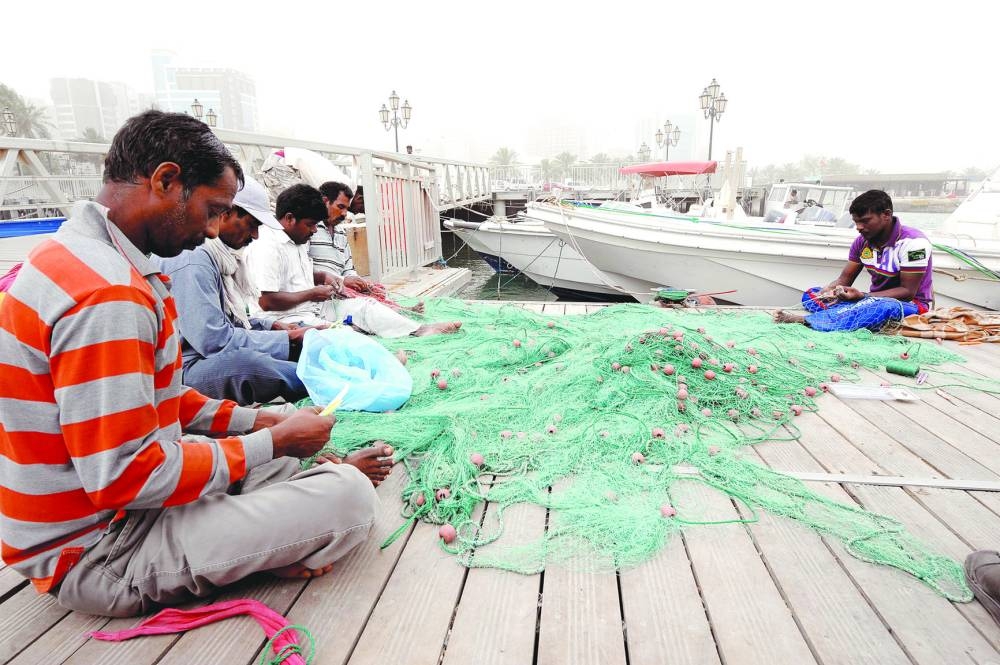The limited supply of locally caught fish at the market over the past few days is mainly due to the decreasing amounts of the catch at the local waters due to the hot and humid weather conditions, a number of Qatari fishermen have pointed out.
Speaking to local Arabic daily Arrayah, they expected that this situation normally lasts until mid-September and as the weather temperature get hotter, most of the fish escape to the cooler areas deep in the sea and away from the coastal areas.
Saif al-Fadala, pointed out that usually the amounts of local fish displayed at the local market drop by almost 70% compared to the winter season.
Yousef al-Mannai said that the fish is there and still lives at the local waters but they often go deep into the sea to the cooler places away from the coastal areas that is why the catch becomes limited during this season. However, such limited supply have not impacted the retail prices of fish in the country negatively, as the prices remained reasonable and low for some varieties due to the decreasing demand.
Jassim al-Linjawi said that this phenomenon is perfectly natural and ends by mid-September. He explained that the sea undergoes a comprehensive process of change during this period regarding the seaweed, and other sea plants due to the hot weather. He also complained that the profit margin of the Qatari fishermen is very low and gives them big disappointment, especially with the hard work during the summer season. Accordingly, he called for more freedom in setting retail prices and allow local fishermen to export certain types of fish such as the Sheri fish because the Qatari Sheri is better the imported varieties.
Mubarak al-Mehazaa said that fish is plenty at the north of Qatar but catching it requires big efforts and a lot of work with the summer heat. He said that the prices at which fish is sold these days do not encourage fishermen to go for fishing as it barely covers the cost of operation. So, some fishermen opt to keep their fishing vessels parked at this period to avoid potential losses. He sees that most of the profit goes to the retail traders who often buy the fish at small prices and sell to their customers at much higher prices.


